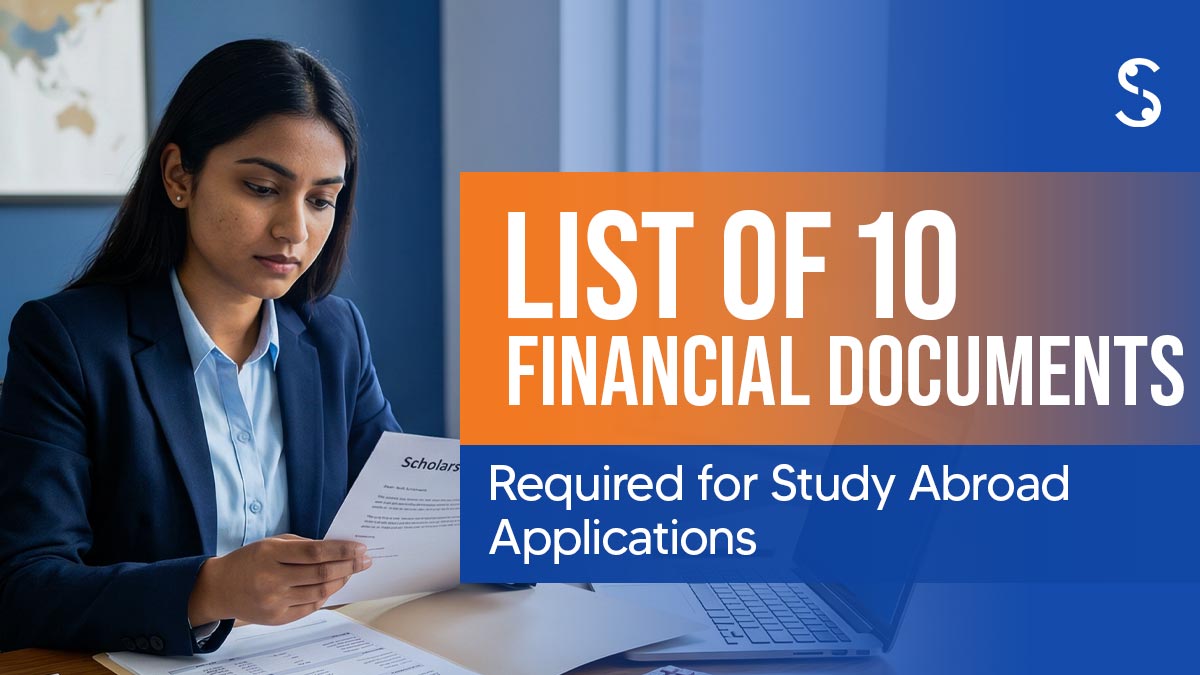
CFA Course: Admission 2026, Fees
The Chartered Financial Analyst (CFA) program is one of the most respected qualifications in the finance world. It’s designed for people who want to build a successful career in areas like investment banking, portfolio management, and financial analysis. The CFA course covers everything from investment strategies and financial analysis to ethics, giving professionals the knowledge they need to stand out in the industry.
Getting the CFA credential shows that you have expertise and a strong commitment to your career, which can open up great job opportunities with top companies worldwide. If you’re thinking about a career in finance or looking to advance further, knowing the details of the CFA program is important.
Therefore, let us walk you through everything you need to know about the CFA Course for 2026—including admission requirements, fees, syllabus, exam details, top colleges for CFA prep, and the many career opportunities available for CFA charterholders.
What is CFA? Full Form & Program Overview
The CFA stands for Chartered Financial Analyst, a globally recognized professional designation awarded by the CFA Institute. It is considered one of the highest distinctions in the investment management profession.
The CFA program is designed to provide deep knowledge and expertise in areas like investment analysis, portfolio management, and financial ethics which makes it a highly valued credential for finance professionals.
What is the duration of CFA?
The CFA (Chartered Financial Analyst) program usually takes about 2 to 3 years to finish. This depends on how quickly you pass all three exam levels.
Global Recognition & Relevance of the CFA Charter
The CFA charter is recognized worldwide and is highly respected in the finance industry. Employers and financial institutions across the globe value CFA charterholders for their rigorous training, strong analytical skills, and commitment to ethical practices.
Having a CFA designation can significantly boost a professional’s credibility, enhancing career prospects in roles like financial analyst, investment banker, portfolio manager, and risk manager.
| Aspect | Details |
| Duration | 2-4 years (depends on individual pace) |
| Eligibility | Bachelor’s degree (in any field); final-year students can apply |
| Entrance Exam | No specific entrance exam |
| Fees | Approx. INR 3,00,000 – 3,50,000 (entire program) |
| Salary | Entry: INR 6,00,000 – 10,00,000; Mid: INR 10,00,000 – 20,00,000; Senior: INR 20,00,000 – 40,00,000+ |
| Career Paths | Investment analysis, portfolio management, financial advisory, risk management |
| Global Recognition | Highly recognized globally, especially in investment and finance |
Levels of the CFA Program: Level I, II, and III
The CFA program consists of three levels:
CFA Level I
This level focuses on foundational concepts in financial analysis, economics, and accounting. It covers topics such as financial reporting, corporate finance, quantitative analysis, and ethics.
CFA Level II
Building upon the foundation established in Level I, Level II delves deeper into investment valuation, portfolio management, and fixed income analysis. It includes topics such as equity valuation, derivatives, and alternative investments.
CFA Level III
The final level of the CFA program focuses on advanced portfolio management, investment decision-making, and ethical considerations. It covers topics such as asset allocation, performance evaluation, and the role of the investment professional in society.
Each level of the CFA program requires significant time and dedication to prepare for and pass the corresponding exam. Successful completion of all three levels results in the award of the CFA charter.
CFA Syllabus & Exam Pattern
The CFA curriculum is designed to provide a comprehensive understanding of the investment profession. It covers a wide range of topics, from ethical considerations to quantitative analysis.
Level I
- Ethics: Professional conduct, integrity, and standards of practice.
- Quantitative Methods: Statistics, probability, and mathematical concepts.
- Economics: Microeconomics and macroeconomics.
- Financial Reporting and Analysis: Accounting principles, financial statement analysis, and corporate finance.
- Equity Valuation: Valuation of common stocks.
- Corporate Finance: Capital budgeting, cost of capital, and dividend policy.
- Fixed Income: Valuation of bonds, interest rate risk, and credit analysis.
- Derivatives: Options, futures, and swaps.
Level II
- Ethics: Continued focus on ethics and professional standards.
- Quantitative Methods: Advanced quantitative techniques.
- Economics: Applied economics and economic analysis.
- Financial Reporting and Analysis: Advanced financial statement analysis and corporate finance.
- Equity Valuation: Advanced equity valuation techniques.
- Corporate Finance: Advanced corporate finance topics.
- Fixed Income: Advanced fixed income analysis.
- Derivatives: Advanced derivatives analysis.
- Portfolio Management: Asset allocation, risk management, and performance evaluation.
Level III
- Ethics: Continued emphasis on ethics and professional standards.
- Quantitative Methods: Selected quantitative topics.
- Economics: Economic analysis and its impact on investment decisions.
- Financial Reporting and Analysis: Selected financial reporting and analysis topics.
- Equity Valuation: Selected equity valuation topics.
- Corporate Finance: Selected corporate finance topics.
- Fixed Income: Selected fixed income topics.
- Derivatives: Selected derivatives topics.
- Portfolio Management: Advanced portfolio management topics, including asset allocation, risk management, and performance evaluation.
Exam Format, Duration, and Number of Questions at Each Level
- Level I: The exam consists of two 135-minute sessions with 180 multiple-choice questions (90 questions per session). The focus is on fundamental knowledge and understanding of investment tools and concepts.
- Level II: This level also has two 135-minute sessions, but the questions are item set-based, featuring 88 questions divided into 22 vignettes (mini-cases). Candidates are tested on their ability to apply knowledge in complex scenarios.
- Level III: The exam format includes constructed response (essay) questions and item sets. It also has two 135-minute sessions. This level tests candidates’ ability to apply concepts and techniques in portfolio management and wealth planning.
CFA Entrance Exam & Admission Requirements
The CFA program itself does not have a separate entrance exam, but enrolling in the CFA program means you must pass a series of exams across three levels (Level I, II, and III) to earn the CFA charter. Each level serves as a progressive stage in the program.
Admission Requirements:
- A bachelor’s degree (or equivalent) or be in the final year of your degree program.
- Alternatively, four years of relevant professional work experience (or a combination of education and experience).
- Candidates must have a valid international travel passport for registration.
CFA Institute’s Official Materials and Third-Party Prep Providers
- CFA Institute: Provides official study materials, including the curriculum, practice questions, and mock exams, which are included in the registration fee. It also offers online learning resources and a candidate discussion forum.
- Third-Party Prep Providers: Many candidates also use third-party study providers like Kaplan Schweser, Wiley, and AnalystPrep. These providers offer structured courses, study notes, video lectures, practice exams, and review workshops designed to simplify complex topics and optimize exam preparation.
Admission Process for CFA in 2026
Enrolling in the CFA program involves a straightforward process, but candidates must meet specific eligibility criteria and follow the registration steps set by the CFA Institute.
1. Eligibility Requirements
Before registering, ensure you meet the following requirements:
Educational Qualification:
- You must have a bachelor’s degree (or equivalent) or be in the final year of your degree program when registering for Level I.
- Alternatively, candidates can have 4,000 hours of professional work experience (relevant work experience or a combination of education and work experience that totals 4,000 hours).
International Passport:
A valid international travel passport is required for registration and identification on exam day.
Language Proficiency:
Some candidates may need to provide proof of English proficiency, such as TOEFL or IELTS scores.
2. CFA Registration Process
Follow these steps to register for the CFA program:
Create an Account:
- Visit the CFA Institute’s official website and create an account.
Register for the Exam:
- Choose the appropriate exam level (Level I for new candidates).
- Fill out the required information and confirm that you meet the eligibility criteria.
Select an Exam Window:
- CFA exams are offered multiple times a year for Level I, and twice a year for Levels II and III. Choose a convenient exam window based on your preparation timeline.
Pay the Fees:
CFA registration involves two main fees:
- Enrollment Fee (one-time fee paid during initial registration).
- Registration Fee for each level’s exam (early registration discounts may be available).
3. Prepare the Required Documents
Make sure you have the following documents ready during the registration process:
- Valid international passport (for identification purposes).
- Proof of education (if applicable) or information about your professional work experience.
4. Exam Scheduling
Once registered, you can choose your exam location and date within the selected exam window. Seats are limited, so scheduling early is recommended to secure your preferred test center and time.
Fees for CFA Course in 2026
The CFA program fees can Between INR 11,000 and INR 3.5 Lakh vary depending on when you register and whether you are a new candidate. Here’s the estimated fees for the CFA course in 2026:
1. Enrollment Fee
One-Time Enrollment Fee: USD 350 (Approx. INR 29,000). This is paid when you register for Level I and is only charged once.
2. Registration Fee (Per Exam Level)
The registration fees for each level vary depending on when you register:
- Early Registration: USD 900 (Approx. INR 74,500). This fee applies if you register early, several months before the exam date.
- Standard Registration: USD 1,200 (Approx. INR 99,500). The regular fee for candidates registering after the early period but before the final deadline.
3. Additional Costs
- Curriculum Access: The digital version of the curriculum is included in the registration fee. If you prefer a physical copy, it costs around USD 150-200 (Approx. INR 12,500-16,500).
- Rescheduling Fee: USD 250 (Approx. INR 20,800). Applicable if you need to change your exam date within the chosen exam window.
So, the total estimated cost for the entire CFA Program is typically around INR 3,00,000 to 3,50,000 if you register early and minimize extra costs.
Top Indian Colleges & Institutes Offering CFA Prep Courses
Here are the top Indian colleges and institutes that offer CFA prep courses, along with their estimated fees:
| Institute/College | Location | Course Duration | Estimated Fees (INR) | Details |
| IMS Proschool | Mumbai, Delhi, Pune | 6-12 months | 40,000 – 80,000 | Offers live online classes and classroom sessions, including mock tests and study materials. |
| Kaplan Schweser (via EduPristine) | Online (All India) | 6-12 months | 60,000 – 1,20,000 | Provides CFA prep through online classes and materials, including question banks and practice exams. |
| Fintree | Mumbai, Pune, Online | 6-12 months | 30,000 – 70,000 | Focuses on weekend and weekday batches with personalized support and live sessions. |
| Delhi School of Economics | Delhi | 6 months | 50,000 – 90,000 | Known for quality CFA training programs with flexible timings for professionals and students. |
| The WallStreet School | Delhi, Online | 3-6 months | 60,000 – 1,00,000 | Offers both live and recorded classes with a focus on practical application and mock exams. |
| Indian School of Business & Finance (ISBF) | Delhi | 12 months | 70,000 – 1,50,000 | Partnered with CFA Institute; offers comprehensive CFA prep with professional mentors. |
| FinGrad | Chennai, Online | 6-12 months | 35,000 – 75,000 | Provides online and classroom training with study notes, practice exams, and revision sessions. |
| SSEI (Sanjoy Sir’s Classes) | Kolkata, Online | 6-9 months | 25,000 – 50,000 | Offers live online classes and doubt-solving sessions, known for its structured approach to CFA preparation. |
| Convergence Institute of Management (CIM) | Bangalore | 6 months | 50,000 – 80,000 | Provides CFA coaching with both online and offline options, including mock tests and study resources. |
| Nesto Institute of Finance | Chennai | 6-9 months | 30,000 – 60,000 | Specializes in financial courses, offering CFA prep with flexible batch timings and comprehensive study materials. |
Note: The estimated fees are approximate and may vary based on the level (I, II, or III), duration, and format (online or classroom) of the course. It is advisable to check directly with the institute or our education experts at Shuraa Education for the most up-to-date information.
Career Scope After CFA Course
The Chartered Financial Analyst (CFA) designation is highly regarded in the finance and investment industries. Some of the key job opportunities include:
- Investment Analyst
- Portfolio Manager
- Financial Analyst
- Research Analyst
- Risk Manager
- Private Equity Analyst
- Corporate Finance Professional
- Wealth Manager
The salary for CFA charterholders can vary significantly depending on factors such as experience, location, industry, and specific role. However, CFA charterholders generally command higher salaries compared to those without the designation.
Here are some estimated salary ranges for CFA charterholders in India:
- Entry-level: 8-15 lakhs per annum
- Mid-level: 15-30 lakhs per annum
- Senior-level: 30+ lakhs per annum
Salary growth prospects for CFA charterholders are generally good, as the demand for financial professionals with strong analytical skills and ethical standards continues to increase. With experience and career progression, CFA charterholders can expect substantial salary growth and career advancement opportunities.
CFA vs. CA Course Comparison
The CFA (Chartered Financial Analyst) and CA (Chartered Accountant) courses are prestigious finance qualifications. The CFA focuses on investment management and analysis, while the CA covers a broader range of finance skills, including accounting and taxation. Here’s a comparison to help students choose the right path.
| Feature | CFA | CA |
| Full Form | Chartered Financial Analyst | Chartered Accountant |
| Focus | Investment analysis, portfolio management, financial reporting | Accounting, auditing, taxation, financial management |
| Eligibility | Bachelor’s degree or equivalent | Bachelor’s degree in commerce or equivalent |
| Entrance Exam | No specific entrance exam, direct registration for Level I | CA Foundation and CA Intermediate exams |
| Course Duration | Typically, 2-4 years to complete all three levels | 3 years of articleship + 1 year of CA Final preparation |
| Levels | Three levels (I, II, III) | Three levels (Foundation, Intermediate, Final) |
| Fees | INR 3,00,000 – 3,50,000 for the entire program | INR 50,000 – 1,00,000 for the entire course (including registration and exam fees) |
| Salary | Generally higher for CFA charterholders, especially in investment and finance roles | Competitive, especially in auditing and taxation firms |
| Career Paths | Investment analysis, portfolio management, risk management, corporate finance | Auditing, taxation, financial accounting, financial management |
| Global Recognition | Highly recognized globally | Recognized within India and some international markets |
Your CFA Journey Begins Here!
The CFA charter is a prestigious and globally recognized credential that can significantly enhance your career prospects in the financial industry. If you’re thinking about this path, we encourage you to dive deeper into the CFA course.
For those interested in studying abroad or wanting more information about the program, Shuraa Education is here to help. Our friendly experts can guide you in choosing the right courses and assist you in getting admission to your dream university. Take the first step towards your finance career with the CFA charter and let Shuraa Education support you along the way.
Let's Plan Your Study Abroad Journey!
Please leave your details and we will contact you shortly!
Categories
Trending Post
Latest Post

How to Study Abroad for Free or Cheap in 2026?
Many students believe that studying abroad is only for people with a lot of money. The high fees, expensive lifestyle, and foreign currencies can make it feel scary and impossible. Because of this, many students drop the idea without even checking what options are actually available. But the truth is – Studying abroad is much more […]
Read More
UCD Dublin Rankings, Fees, Courses & Reviews for Indian
For Indian students planning to study in Dublin, University College Dublin (UCD) stands out as a top choice for quality education and global exposure. As Ireland’s most globally connected university, UCD attracts students from around the world through its strong focus on research, innovation, and real-world impact. The campus culture is spirited and inclusive, making […]
Read More
List of 10 Financial Documents Required for Study Abroad Applications
Planning to study abroad is exciting, but before you pack your bags, there’s one critical step you can’t skip: proving your financial readiness. Universities and immigration authorities want assurance that you can comfortably cover tuition fees, living expenses, and other costs throughout your studies. That’s where the financial documents required for study abroad come in. These documents form the backbone of your […]
Read More
